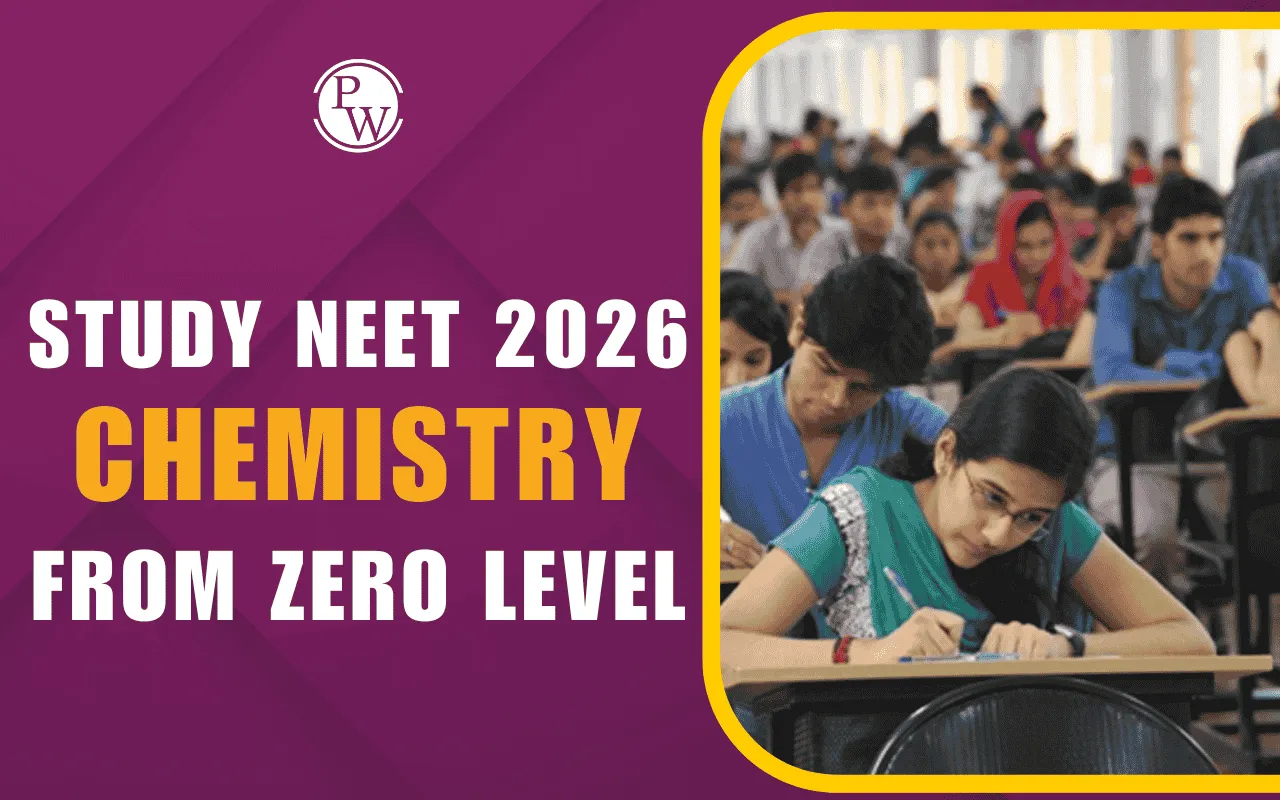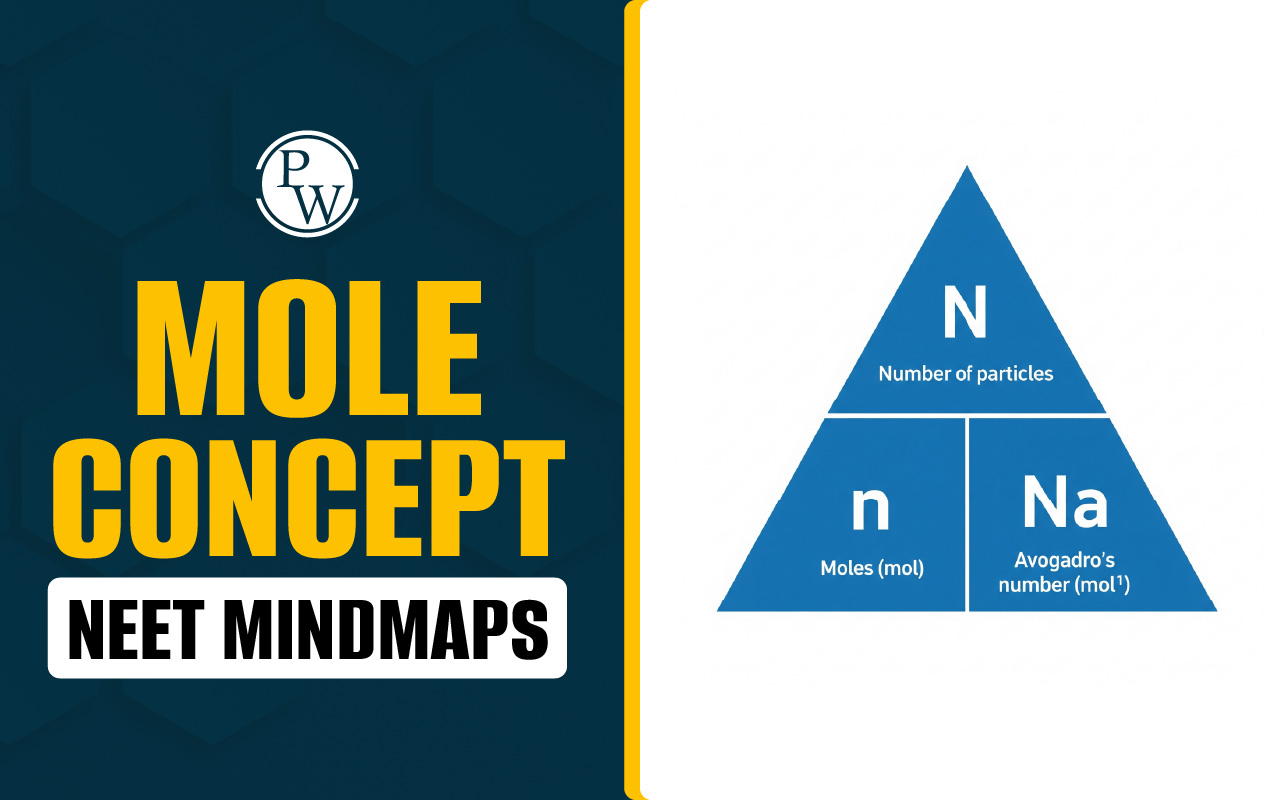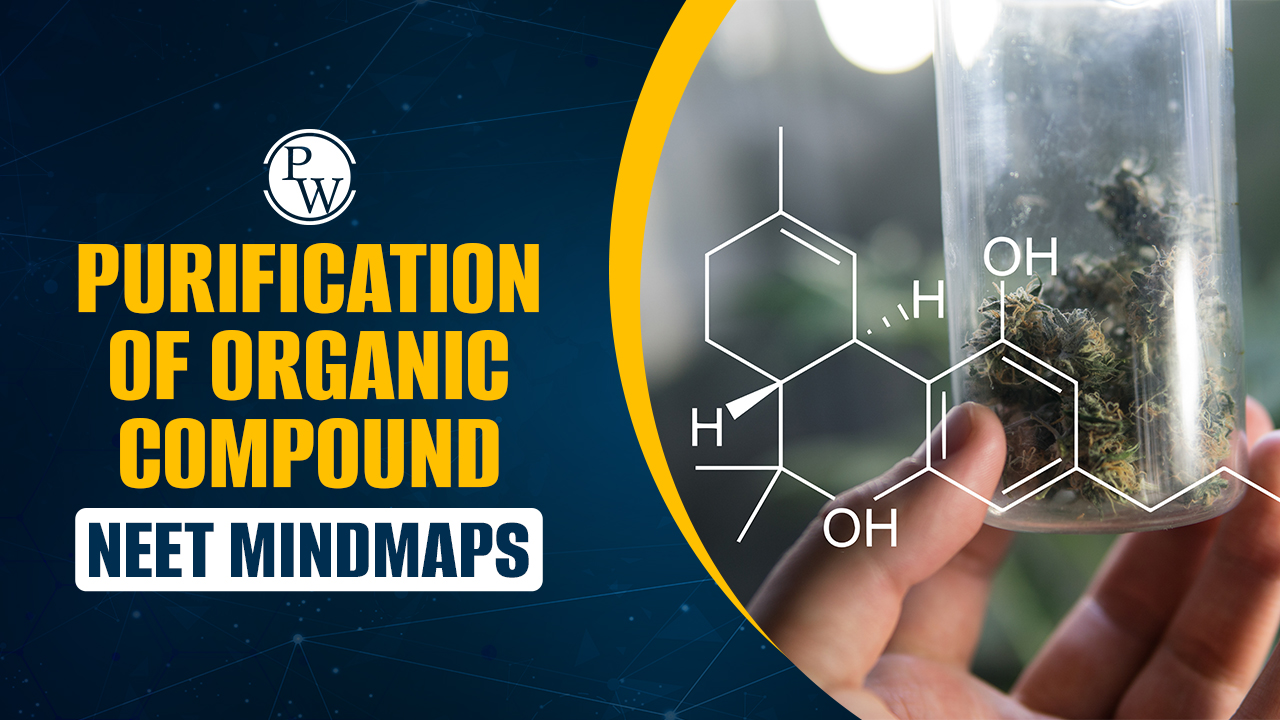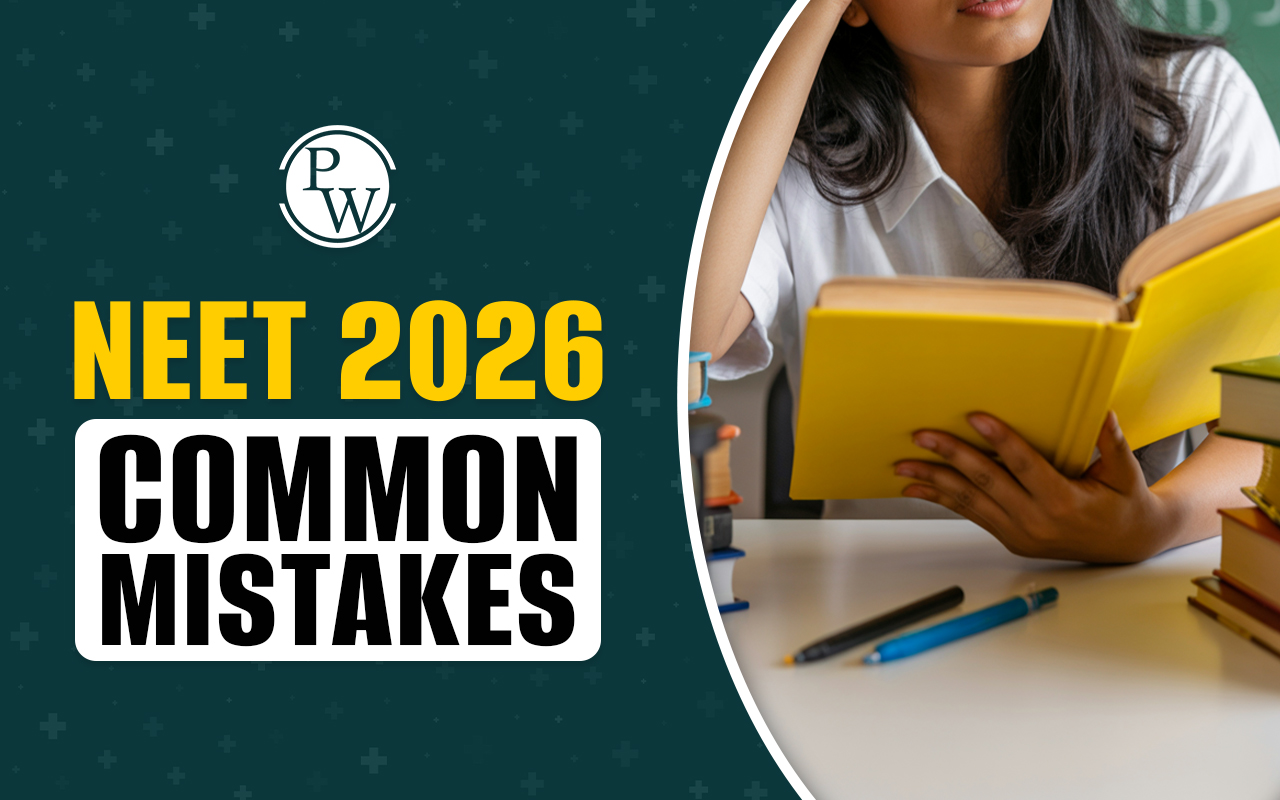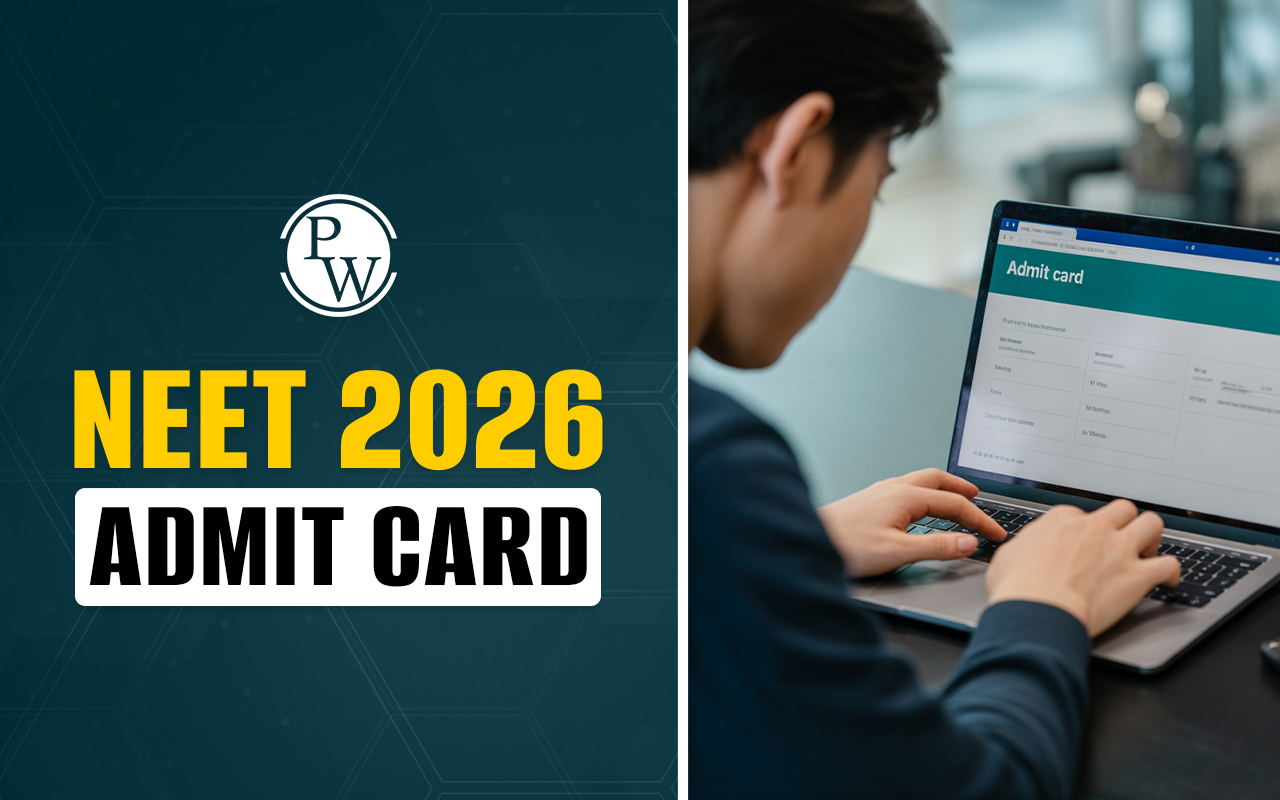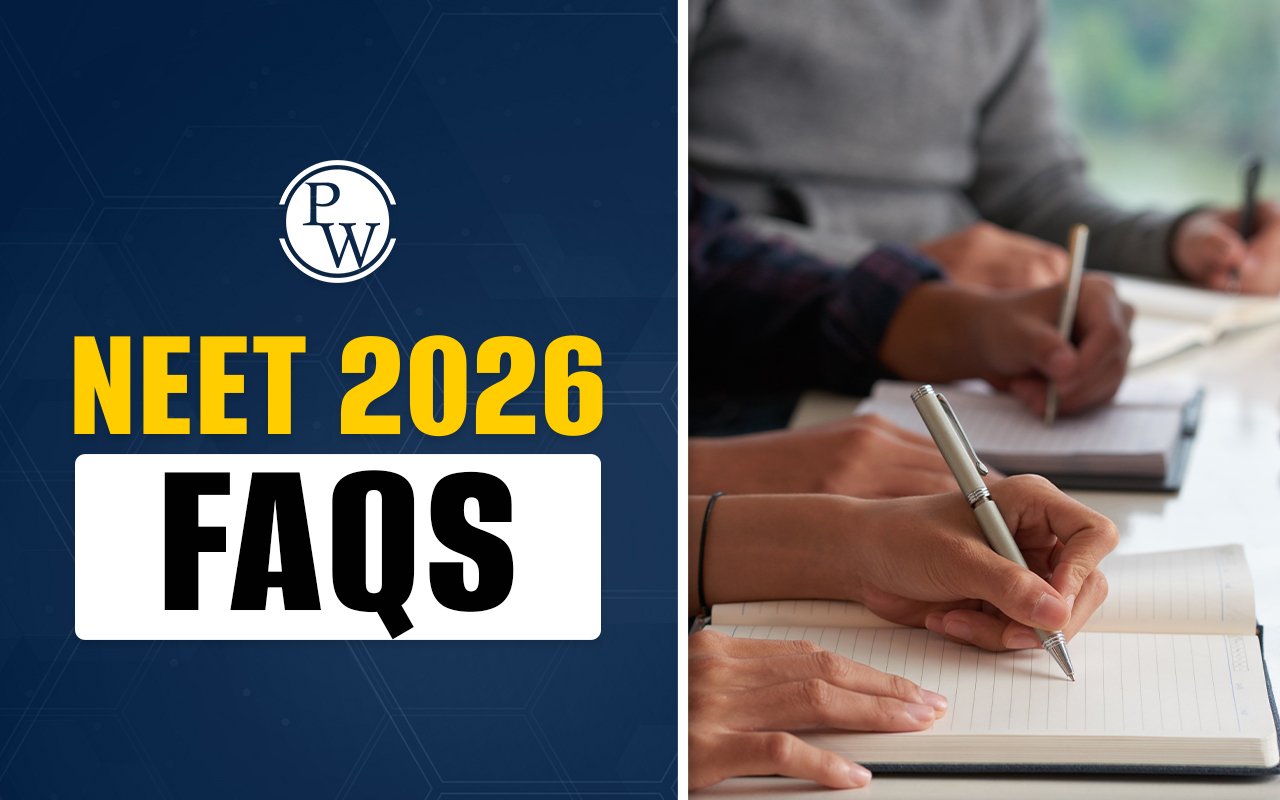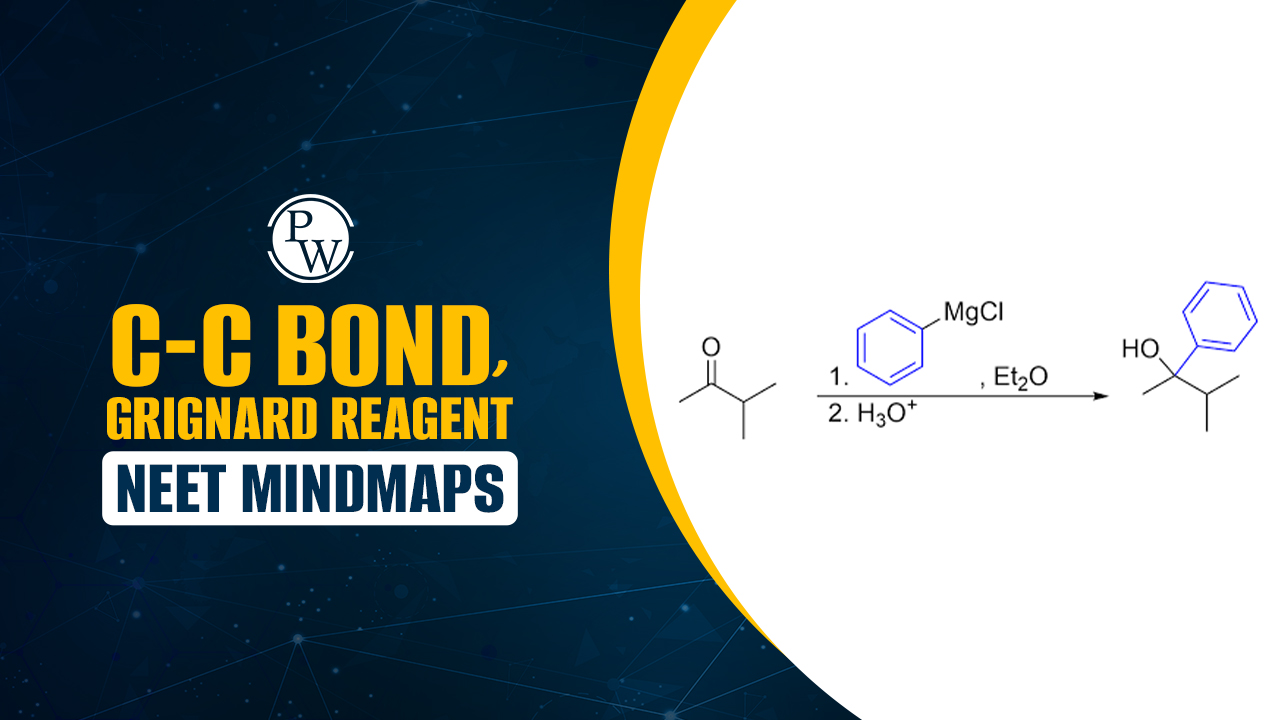
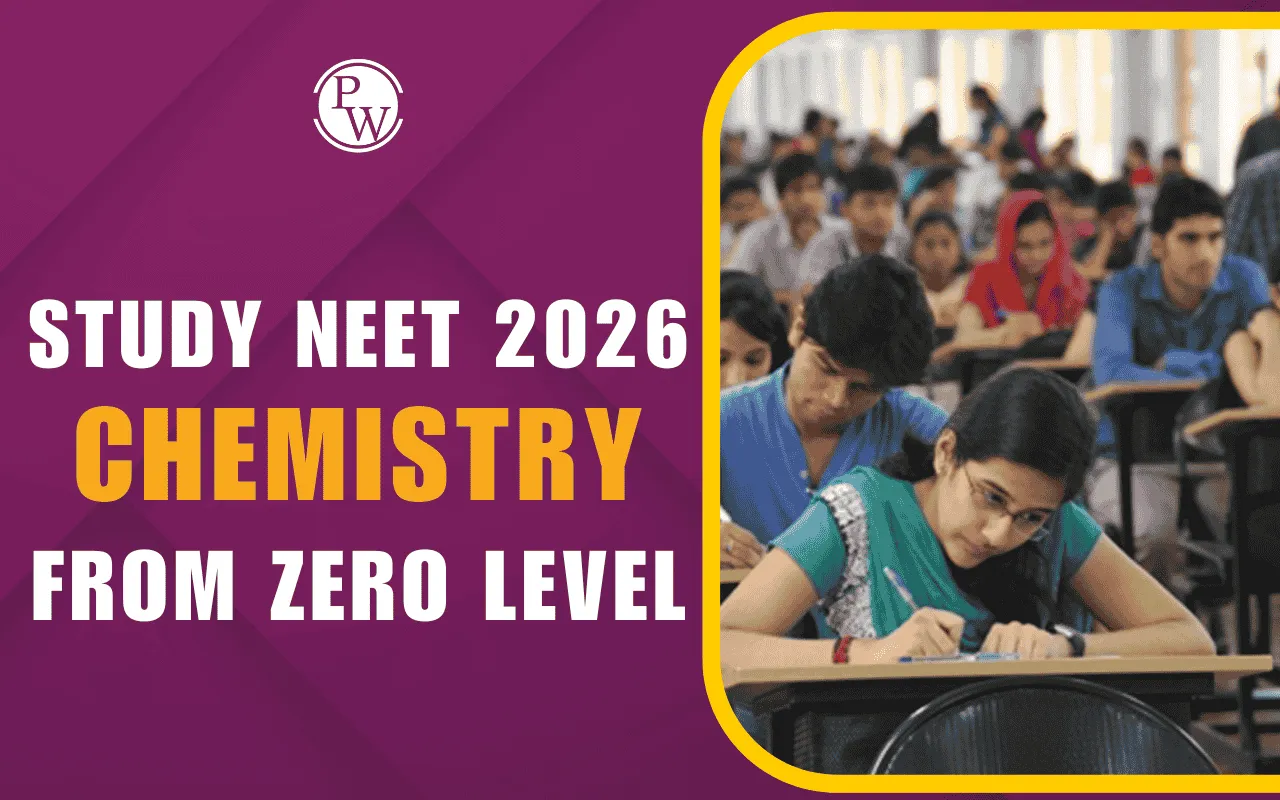
Study NEET 2026 Chemistry from Zero Level: Chemistry is one of the scoring subjects in NEET, but also one of the subjects that most students find difficult for NEET. This is because it tests facts (memory), numerical problems (speed & accuracy) and logical reasoning questions.
Students who are new to Chemistry don’t get much help from books either, as they start directly from concepts. If you are a beginner or want to learn chemistry from Zero Level, you can still study NEET 2026 Chemistry from Zero Level by having a well-thought-out plan, strategy and of course lots of practice.
The secret is to start from the very basics, then understand concepts and then move on to high-level chemistry problems and questions. Here, we will take you through how to learn Chemistry for NEET from the very basics, NEET Chemistry study plan for beginners and the complete NEET Chemistry fundamentals guide. Stick to this plan and you are sure to gain confidence and score well in Chemistry, making it a scoring subject in NEET 2026.
Study NEET 2026 Chemistry from Zero Level
When preparing from scratch, it is important to understand the subject divisions and NEET chapterwise weightage:
-
Physical Chemistry: Emphasis on formulas, reactions, and numerical calculations. Covers Mole Concept, Thermodynamics, Equilibrium, Electrochemistry, and Chemical Kinetics. Very logical and numerical.
-
Organic Chemistry: GOC, Hydrocarbons, Alcohols, Carbonyl compounds, Biomolecules, and Polymers. This part is theory and memorisation-based (reaction and their mechanisms).
-
Inorganic Chemistry: Periodic Table, Chemical Bonding, s-block, p-block, d-block, f-block, and Coordination Compounds. Mostly theory, but this part gives you a very high score if you prepare well.
So dividing your preparation into 3 parts will help you with your NEET Chemistry preparation. If you are starting NEET Chemistry from scratch, always start your preparation from the NCERT Class 11 and 12 books. They will cover almost 90% of the questions that will be asked in NEET.
Strategies Study NEET 2026 Chemistry from Zero Level
NEET aspirants, who are at a zero level in Chemistry, often find themselves confused about how to cover the entire syllabus for the NEET 2026 Exam. Chemistry is a challenging subject, but it’s not impossible. By understanding the NEET exam pattern and attempting previous year questions, one can get a better grip on the subject and cover the entire syllabus.
-
Understand NEET Syllabus: Prioritize Class 11 topics such as Mole Concept, Atomic Structure, Thermodynamics, and Chemical Equilibrium, and Class 12 topics such as Chemical Kinetics, Electrochemistry, Aldehydes, Ketones, Carboxylic Acids, and D/F-block elements. By understanding the NEET syllabus, you can create a structured plan to cover all topics.
-
Study NEET Exam Pattern: Chemistry carries 25% of NEET marks. Physical Chemistry questions are based on numericals. Organic Chemistry questions focus on reactions and mechanisms. Inorganic Chemistry questions are primarily theory-based. This information helps in dividing time.
-
Practice NEET Previous Year Questions: Attempting NEET’s previous year questions will help you identify the topics and question patterns frequently asked in the exam. Practicing previous years' questions will also enhance your understanding of the exam and improve your speed.
-
Take a Topic-wise Approach: Start with Physical Chemistry and learn all the formulas and numericals. Then, move to Organic Chemistry reactions and mechanisms. Finally, cover Inorganic Chemistry’s key facts and trends.
-
Create Notes and Visual Charts: Write down all formulas, reactions, exceptions, and important facts. Make visual charts like flowcharts for Organic reactions and tables for Inorganic trends to help memorize.
-
Revise Daily: Dedicate 30–45 minutes every day to revise the topics covered the previous day. This will ensure that you don’t forget anything and strengthen your basics.
-
Build a Structured Study Plan: Dedicate 4–5 hours a day to study Chemistry- 2 hours for Physical, 1.5 hours for Organic, and 1.5 hours for Inorganic. Mix up chapters daily and attempt weekly self-tests that mimic the NEET exam pattern.
NEET Chemistry Study Plan for Beginners
As a Beginner, it is recommended to have a NEET Chemistry study plan that will allow you to complete the NEET syllabus from zero. The study plan should consist of the 3 parts of Chemistry (Physical, Organic, Inorganic), Practice, Revision and should also cover Previous Year Papers and previous year questions.
| NEET Chemistry Study Plan for Beginners | ||||
| Day/Week | Time Allocation | Subject | Topics to Cover | Practice/Revision |
| Week 1 | 2 hrs | Physical | Mole Concept, Atomic Structure | Solve 20–25 numericals, revise formulas |
| 1.5 hrs | Organic | General Organic Chemistry (GOC), Functional Groups | Write reaction mechanisms, make flowcharts | |
| 1.5 hrs | Inorganic | Periodic Table, Chemical Bonding | Make tables, memorize trends | |
| Week 2 | 2 hrs | Physical | Thermodynamics, Chemical Equilibrium | Solve 20–30 problems, revise concepts |
| 1.5 hrs | Organic | Hydrocarbons (Alkanes, Alkenes, Alkynes) | Practice reactions and mechanisms | |
| 1.5 hrs | Inorganic | S-block Elements (Alkali, Alkaline Earth Metals) | Solve NCERT questions, make charts | |
| Week 3 | 2 hrs | Physical | Electrochemistry, Chemical Kinetics | Numerical practice, formula revision |
| 1.5 hrs | Organic | Alcohols, Phenols, Ethers | Revise mechanisms, practice MCQs | |
| 1.5 hrs | Inorganic | P-block Elements (Groups 13 & 14) | Make tables, memorize exceptions | |
| Week 4 | 2 hrs | Physical | Surface Chemistry, Nuclear Chemistry | Solve NCERT questions, revise formulas |
| 1.5 hrs | Organic | Aldehydes, Ketones, Carboxylic Acids | Practice reactions, revise flowcharts | |
| 1.5 hrs | Inorganic | D-block Elements, Coordination Compounds | Revise facts, solve MCQs | |
| Daily Revision | 30–45 mins | All Subjects | Formulas, reactions, exceptions | Solve 10–15 previous year questions |
| Weekly Self-Assessment | 1–2 hrs | All Subjects | Mock test or chapter-wise quiz | Analyze mistakes and revise weak areas |
Prepare for NEET 2026 with PW NEET online batches. These courses provide clear lessons and regular practice tests to help you cover the entire syllabus step-by-step.
Study NEET 2026 Chemistry from Zero Level FAQs
Q1. How to learn Chemistry for NEET from the basics?
Q2. Which part of Chemistry should I start with for NEET as a beginner?
Q3. Can a beginner do well in NEET Chemistry?
Q4. What is the best NEET Chemistry fundamentals guide?
Q5. How much time should I dedicate to Chemistry daily if starting from the very basics?

